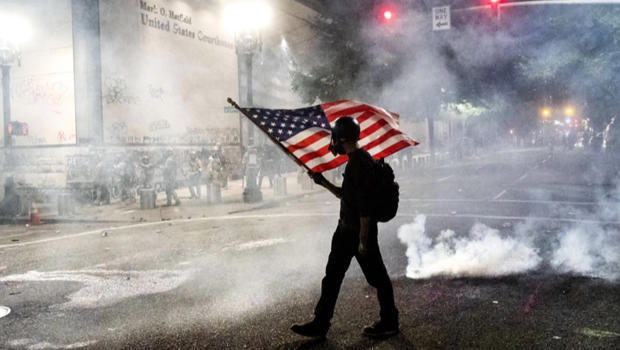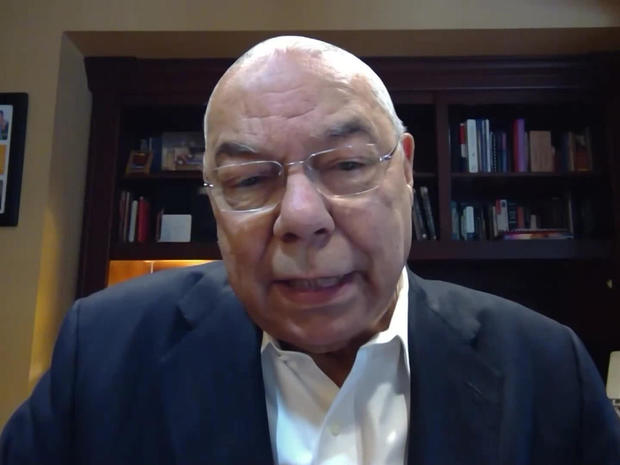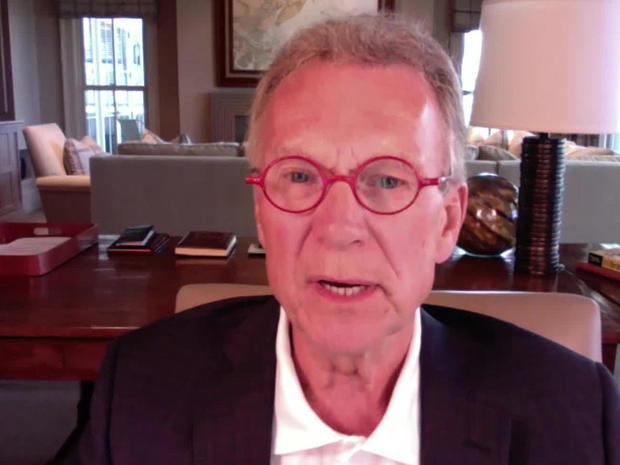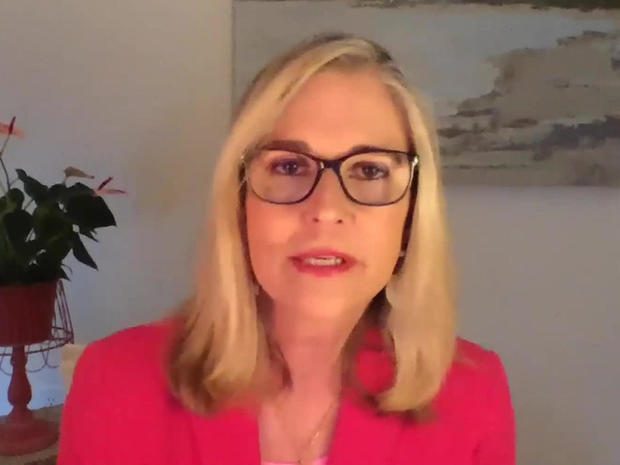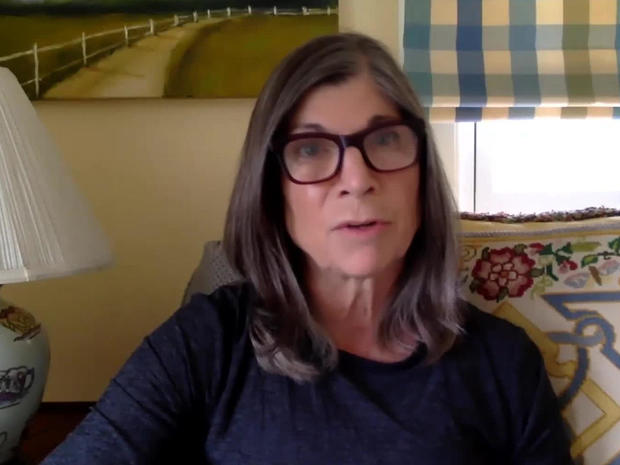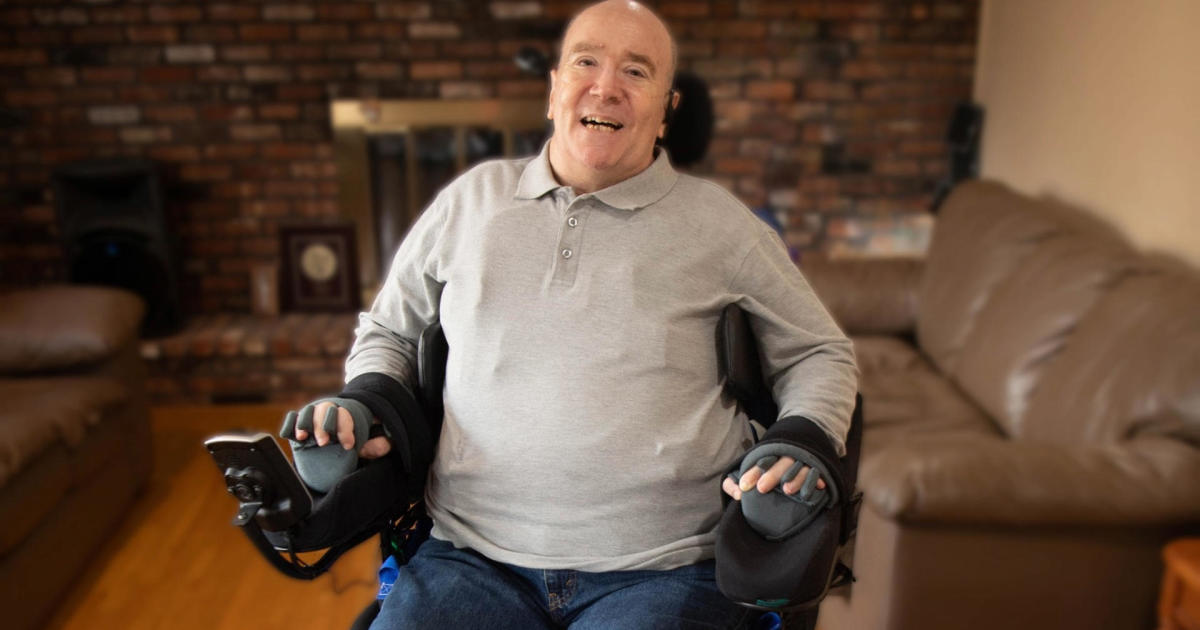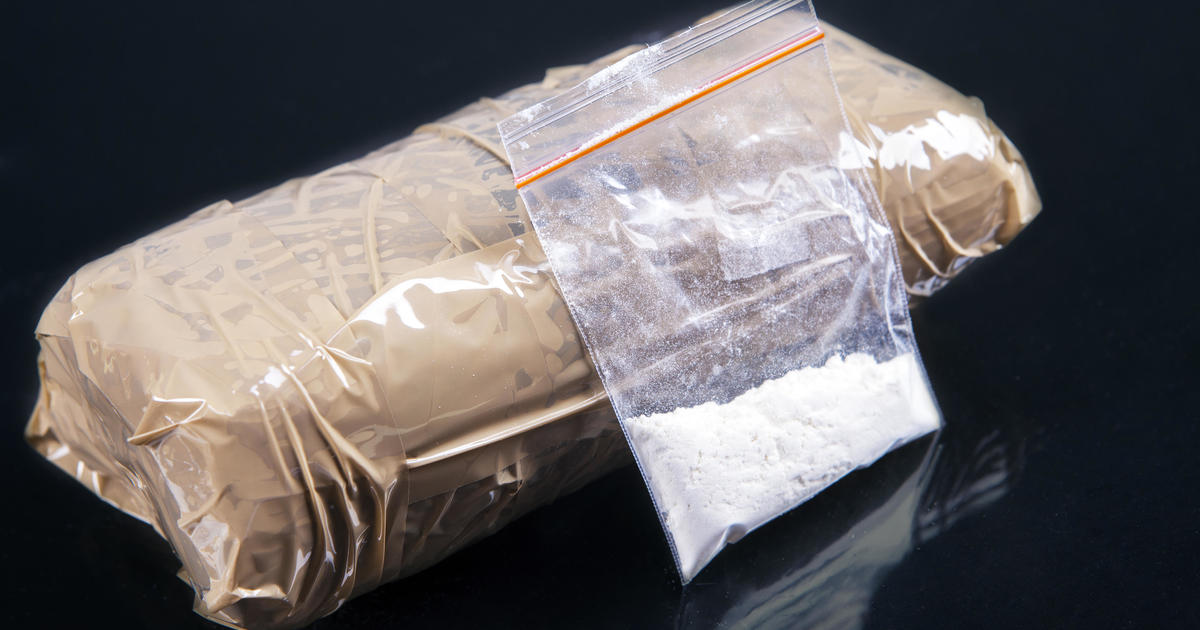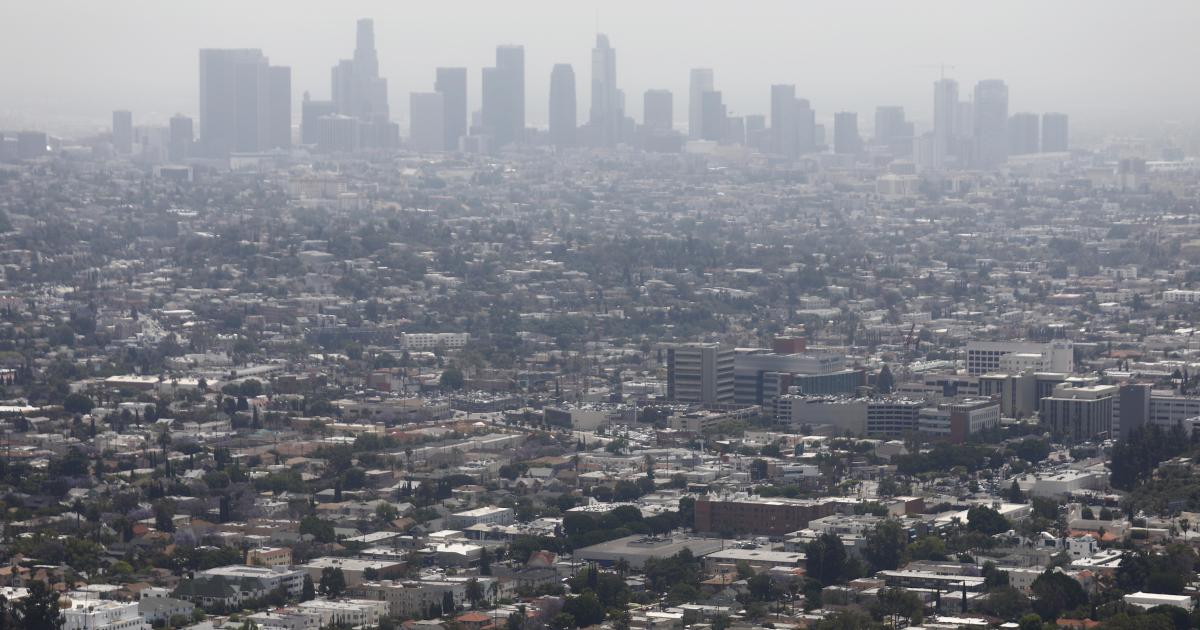The state of our Union
By almost any measure, 1968 was a terrible year for the United States: the bloodiest year, in terms of U.S. casualties in Viet Nam; the assassination of Martin Luther King Jr., which sparked rioting and arson in our inner cities; and, a few weeks later, the killing of Bobby Kennedy. That summer, the Democratic National Convention in Chicago was all but overshadowed by pitched battles between police and anti-war demonstrators.
"I think our parents certainly felt that it was never gonna be the same again," said Pulitzer Prize-winning columnist Kathleen Parker. "And that's how I feel now. I feel great despair.
"It's across the board," she told "Sunday Morning" senior contributor Ted Koppel, "where we feel that no one is really quite in charge, and how, in fact, do we wanna see someone in charge."
Anna Quindlen, who would go on to win her own Pulitzer Prize for commentary from a more liberal perspective than Parker's, was, in 1968, in high school: "In addiction, counselors say all the time that people don't stop self-destructive behavior until they've hit bottom," Quindlen said. "And sometimes I wonder if this is the United States of America hitting bottom in some ways; and that therefore, what history tells us is, from hitting bottom, we can only go up."
Colin Powell would rise to become the highest-ranking officer in the U.S. military, and ultimately Secretary of State. At one point, Powell was a likely Republican candidate for president. But in 1968, he was a young Army major, serving in Viet Nam.
"And the country was a mess," he said. "And remember also that we were entering a period where we're still in the cold war and we're entering the period where we were going to have disappointments in our president and vice president. And we had to let Mr. Agnew go. And then Nixon went. I thought that was about the worst time in my life and in my watching the country.
"But I'll tell you what, the current situation comes close to matching it," Powell said.
Senator Tom Daschle represented South Dakota for three terms between 1987 and 2005. For ten years he led Senate Democrats as both minority and Senate majority leader.
He recalled that in 1968, when he was in college, "It was my very first trip to Washington. So, I have vivid memories of seeing 14th Street and the National Guard out on the streets and the burning buildings and just the extraordinary chaos that was so pervasive.
"I think the big difference between then and now is how functional government was, even under those times, versus how dysfunctional it is today," said Daschle. "We had a president who was not very popular, primarily because of Viet Nam, but was an extraordinary leader on domestic issues. Now, we see enormous dysfunction, almost complete paralysis, except, I would say for the four COVID bills that have been passed.
"For the most part, Congress is just not working as it should," he said. "And we have, of course, a president who's completely dysfunctional."
If, in 1968, Viet Nam and race were the unavoidable, often unbridgeable issues, now it's race and the pandemic.
Quindlen said, "The rest of the world looks at us now – they used to look at us with envy, and now I feel as though they look at us with horror and pity, for our inability to get a handle on a pandemic that we, of all countries, should have been able to fight successfully."
Koppel asked, "If we can't get proper leadership at the federal level, well then, the states and the municipalities are just gonna have to do it on their own. I ask you as someone who has spent a lifetime in governance, is that even doable?"
"The short answer, Ted, is no," Daschle replied. "I think we've seen examples of good leadership at the gubernatorial and state level, even at the local level at times. And I think they can offset some of the shortcomings of not having national leadership.
"But you need a national strategy. You need national resources. You need national policy. You need some way of ensuring that the whole country at large is on the same page."
Daschle, the moderate Democrat, and Powell, the centrist Republican, are relics of another political age, when compromise was rare, but still possible.
Koppel asked Powell, "Would you wanna be taking over control of the government right now?"
"I would just as soon not have to," he replied, "and no one's about to ask me. But I share your view that COVID is one of the worst things I've ever seen happen to the country, because it's not being dealt with properly.
"I mean, this is a disease, this is the condition that is affecting every single part of the United States of America, and the rest of the world for that matter," Powell said. "And so, I believe that what we ought to be doing is having a national plan – not each state and each different county going about it their own way, but a national plan, executed by the federal government, so that we all are doing the same thing."
According to Parker, "It's gonna take a remarkable person, leader or groups of leaders across the nation to figure out how to bring this very diverse country [together]. But I still, I think ultimately I have to be optimistic because we're the United States. Right? We have to come back."
Koppel asked, "When you talk about great leadership, we're down to two candidates now. Do you see great leadership?"
"So, no, I don't see it yet," Parker said. "President Trump, you know, has been a huge disappointment on so many fronts. But the worst, I think, is the fact that he has no qualms about saying things that are intended to dis-unify the country, intended to antagonize certain groups, and intended to marginalize certain groups. So, he's been so bad for this country and so toxic in all those ways. And we can't move forward until we are one again.
"So, the best hope we have right now, I think, is Joe Biden. And that's not to endorse him as a candidate, it's just simply to point out the facts of what we have and what we have to work with going forward."
Koppel asked Quindlen, "Where do we go after Election Day, when there are gonna be tens of millions of people who say, 'I not only don't like the way this turned out, I don't believe the way it turned out'?"
She replied, "I think that there is going to be an unparalleled pressure on national leaders in this country (and I'm not just talking about whoever's President of the United States, I'm talking about members of the Senate, governors, leaders of nonprofit and good government organizations) to speak in some sort of nontoxic way, to try to step back from the Twitterverse – which, as far as I'm concerned, has become in many ways the equivalent of writing on the walls of a public restroom, a venue in which people say things to and about people that they would never say if they were looking them in their eyes."
"On balance, come 2021, 2022, is this gonna be a good place to live?" asked Koppel.
"My two elder grandchildren are half-Chinese; my new grandson is a quarter Black," said Quindlen. "Therefore, they look like America. And I have hopes for that America.
"But I'm not sure that that's the America of 2021. But when I look at those kids, and I think of the future, I don't have any choice but to be hopeful."
For more info:
- Tom Daschle, The Daschle Group
- Kathleen Parker, The Washington Post
- Follow Colin Powell on Twitter
- Anna Quindlen (annaquindlen.net)
Story produced by Dustin Stephens. Editor: Remington Korper.
See also:
- The whole world is watching us ("Sunday Morning," 6/7/20)
- The president as communicator-in-chief ("Sunday Morning," 5/10/20)
- What kind of leadership does our nation need? ("Sunday Morning," 4/12/20)
- Time will tell: Historians on judging presidential leadership ("Sunday Morning," 10/27/19)
